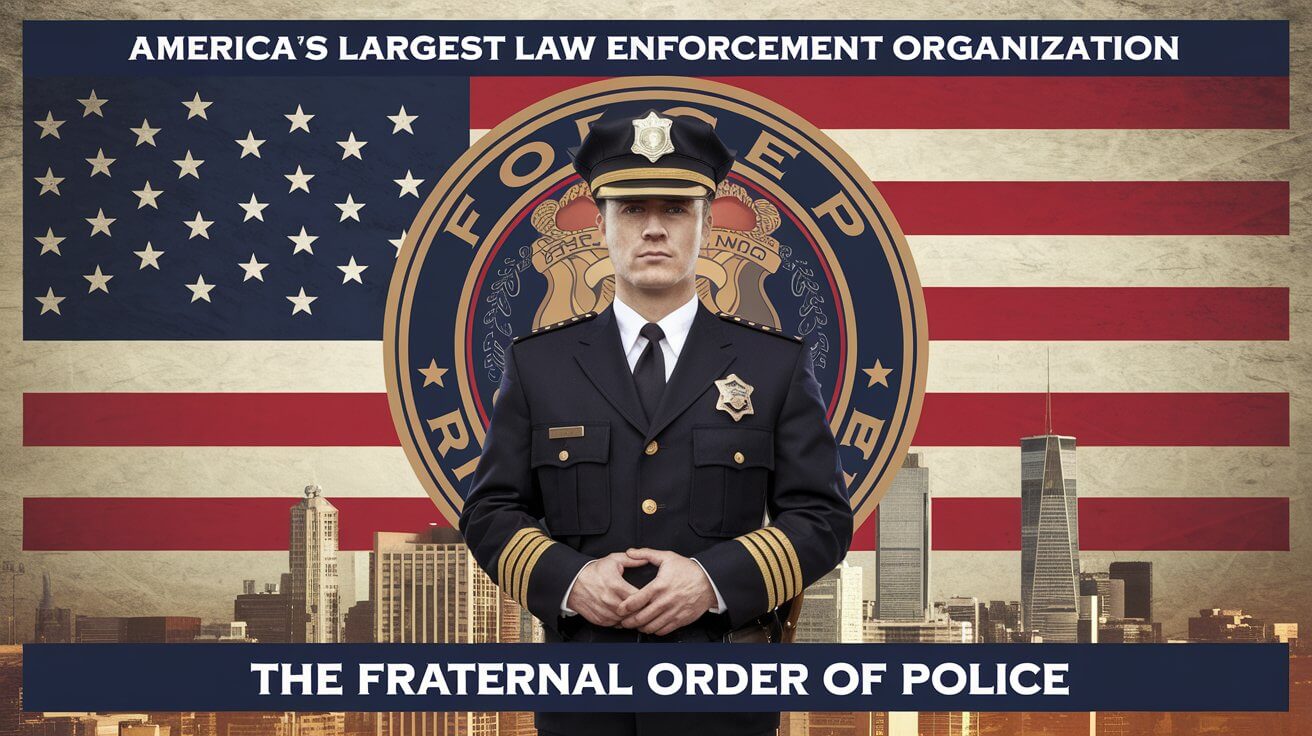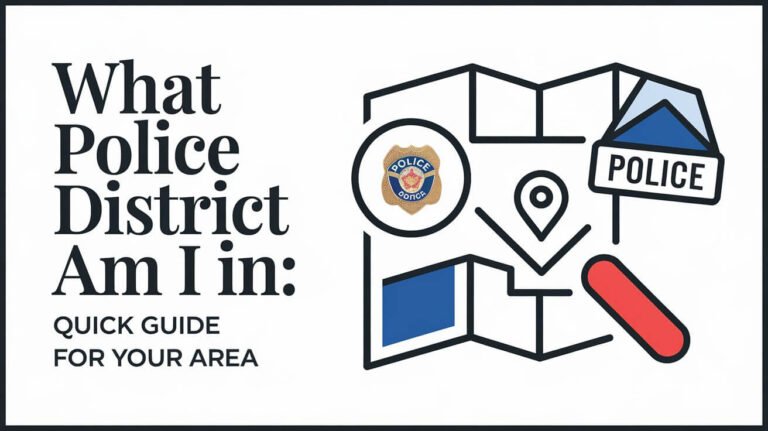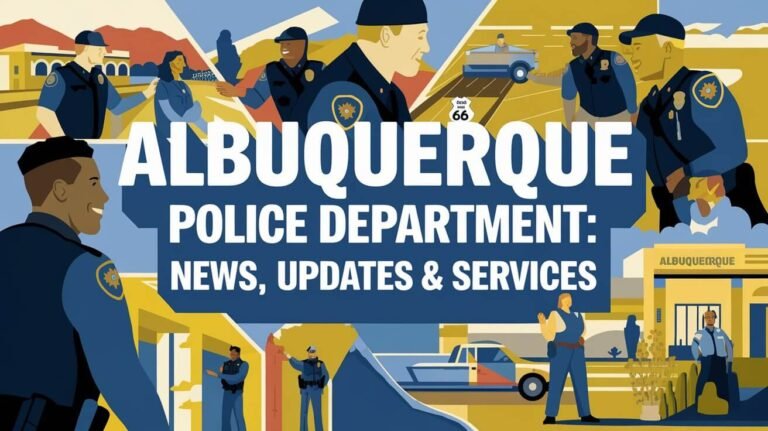The Fraternal Order of Police: America’s Largest Law Enforcement Organization

The Fraternal Order of Police stands as the world’s largest organization of sworn law enforcement officers. With over 377,000 members across 2,200 lodges nationwide, this powerful organization shapes American law enforcement. The FOP serves as the voice for police officers who protect and serve communities across the United States.
Origins and Foundation
The Pittsburgh Beginnings
Two Pittsburgh patrol officers changed the face of American law enforcement forever in 1915. Martin Toole and Delbert Nagle saw their fellow officers struggling with harsh working conditions. Police worked 12-hour days, 365 days a year, with no way to improve their situation.
Toole and Nagle gathered 21 other brave officers for a historic meeting on May 14, 1915. Together, they formed Fort Pitt Lodge #1, the first chapter of the Fraternal Order of Police. They chose this name carefully during a time of strong anti-union sentiment.
Early Challenges in Law Enforcement
The founders approached Pittsburgh Mayor Joe Armstrong with a clear mission. They needed a way to bring officer concerns directly to city leadership. The FOP would serve as their voice for better working conditions and legislative changes.
Their strategy worked. Mayor Armstrong soon praised the FOP’s strong influence in state legislatures. He recognized their charitable work for officers in need. The mayor also noted how the FOP helped build public trust in law enforcement.
Growth from Local to National Organization
By 1917, the vision expanded beyond Pittsburgh. The idea of a national police organization took root. The FOP’s growth shows the power of their original mission. Today’s numbers prove their success – from 23 original members to over 377,000 officers nationwide.
Structure and Organization
National Leadership Framework
The FOP operates through a carefully structured system of leadership. The national organization provides guidance and support to thousands of local chapters. This framework ensures consistent representation while allowing local autonomy.
State and local lodges make their own decisions about services and programs. The national organization offers wide-ranging support services. This balance of power helps the FOP serve members effectively at every level.
State and Local Lodges
Each state maintains its own FOP lodge structure. Local lodges operate within this framework to serve their communities. These lodges work directly with officers in their jurisdictions. They handle local concerns while connecting to state and national resources.
Local lodges determine their own service priorities. They respond to specific needs in their communities. This local control helps the FOP stay relevant and effective across diverse regions.
Membership Categories and Requirements
The FOP welcomes regularly appointed or elected full-time law enforcement officers. Officers must work for the United States, state governments, or their political subdivisions. Agency employment also qualifies officers for membership.
Family members can join the FOP Auxiliary. Law enforcement supporters may join as FOP Associates. This tiered membership structure builds a strong support network around active officers.
Core Mission and Activities
Professional Development Programs
The FOP commits to improving officer proficiency and skills. Training programs help members excel in their duties. Professional development opportunities advance careers and capabilities.
Educational activities strengthen law enforcement knowledge. Officers learn new techniques and best practices. These programs help maintain high standards across the profession.
Legislative Advocacy
Members work together to improve law enforcement through legislation. The FOP advocates for better working conditions and safety measures. Their unified voice carries weight in policy discussions.
The organization supports civil service merit systems. They push for fair appointment and promotion processes. This advocacy helps maintain professional standards in law enforcement.
Community Engagement Initiatives
The FOP builds bridges between police and communities. Members participate in charitable and social activities. These efforts strengthen public trust in law enforcement.
Community involvement creates positive relationships. Officers connect with the people they serve. This engagement helps fulfill the FOP’s mission of protecting life and property.
The FOP Badge and Symbolism
Five-Point Star Design
The FOP’s five-pointed star carries deep meaning. It reminds members of their allegiance to the flag. The star represents the authority trusted to law enforcement officers.
A blue field between the points represents the thin blue line. This symbolizes how officers protect their communities. The design honors the trust placed in law enforcement.
Color Significance
Each color in the FOP emblem holds special meaning. The gold points show current service positions. White backgrounds represent pure service without corruption.
Blue symbolizes the protective role of law enforcement. This color scheme reinforces core values. Together, these colors tell the story of police service.
Motto and Historical Meaning
“Jus, Fidus, Libertatum” serves as the FOP motto. These Latin words mean “Law Is a Safeguard of Freedom.” This phrase captures the organization’s dedication to constitutional principles.
The emblem includes symbols of vigilance and friendship. An open eye watches for danger. Clasped hands show support for those in need.
Membership Benefits and Services
Legal Defense Programs
Members receive vital legal protection and representation. The FOP provides support during workplace challenges. Legal services help officers navigate professional difficulties.
The organization stands behind its members. Legal defense programs protect officer rights. This support gives members peace of mind while serving.
Insurance and Healthcare Options
The FOP offers comprehensive insurance programs. Members access health care and wellness benefits. These services support officers and their families.
Insurance options protect members’ financial security. Healthcare programs maintain officer wellness. These benefits form a crucial safety net.
Educational Opportunities
Members access various learning and growth opportunities. The FOP supports continuing education. Professional development remains a top priority.
Training programs enhance officer capabilities. Educational benefits advance careers. These opportunities help members serve more effectively.
Historical Milestones and Impact
Since 1915, the FOP has shaped American law enforcement. Their influence grew from local to national levels. Key achievements mark their path of progress.
The organization’s growth shows its enduring importance. From Pittsburgh to nationwide influence, the FOP evolved. Their impact continues to expand after more than a century.
Modern Role and Initiatives
Today’s FOP tackles current law enforcement challenges. They adapt to changing social and technical needs. Modern programs address contemporary issues.
The organization maintains its founding principles. Innovation meets tradition in current initiatives. The FOP continues evolving while honoring its history.
How to Join the FOP
Qualified officers can join through local lodges. The process starts with meeting membership requirements. Local chapters guide potential members through application steps.
Family members and supporters have joining options too. The Auxiliary welcomes officer family members. Associates programs include law enforcement supporters.
FOP Foundation and Charitable Work
The FOP Foundation supports various charitable causes. Tax-deductible donations fund important programs. Community service remains central to the organization’s mission.
Scholarship programs help members and their families. Memorial funds honor fallen officers. These initiatives show the FOP’s commitment to service beyond policing.
The Fraternal Order of Police continues its century-long mission of supporting law enforcement. From its humble Pittsburgh beginnings to today’s nationwide presence, the FOP represents police officers’ interests. Their commitment to professional excellence, member support, and community service shapes modern law enforcement.






